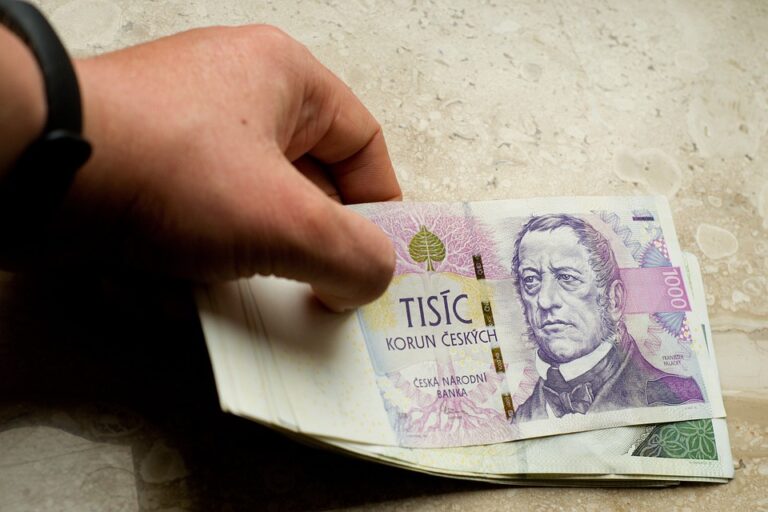Last updated Apr. 23, 2025 by Charles Zemub
Extreme budgeting is not for the faint-hearted. It’s a financial strategy that pushes the boundary of frugality beyond conventional budgeting and into a rigorous exercise of discipline and sacrifice. Whether your goal is to pay off debt, save for a significant purchase, or simply gain greater financial independence, extreme budgeting can be a powerful tool. However, it requires a distinct mindset and, more critically, a willingness to give up certain luxuries and conveniences. In this article, we’ll explore the nuts and bolts of extreme budgeting, discuss its benefits and challenges, and highlight what you might have to forego in pursuit of financial austerity.
Understanding Extreme Budgeting
Before diving into the how-tos, it’s crucial to grasp what extreme budgeting entails. Traditional budgeting involves tracking your income and expenses to ensure that you live within your means. Extreme budgeting, on the other hand, demands a thorough, no-stone-unturned analysis and cutback of one’s financial habits. It involves slashing your usual expenditure by 50% or more and seeking innovative ways to save money on every conceivable front.
Steps to Implement Extreme Budgeting
1. Analyze Your Financial Situation
Begin by mapping out all sources of income and categorizing your expenses. Every dollar should be accounted for. Break down your spending patterns to identify where money flows unnecessarily. Often, you’ll find expenses you didn’t even realize you had.
2. Set Clear Goals
What drives your extreme budgeting efforts? Whether it’s eliminating student loan debt or accumulating a sizable emergency fund, having a set goal will maintain your focus and motivation.
3. Make a Detailed Budget Plan
Draft a realistic yet stringent budget plan. This involves essential spending only. Regularly update your budget to reflect any changes in expenses or income.
4. Slash Non-Essential Spending
Evaluate your spending on dining out, entertainment, subscriptions, luxury goods, and travel. Start preparing meals at home, opt for free entertainment, cancel unnecessary subscriptions, and reconsider expensive travel plans.
5. Increase Income Streams
Budgeting will get you far, but increasing income will double your efforts. Explore side hustles, part-time jobs, or freelance work that can boost your financial intake.
6. Embrace Frugal Living
Adopt a mindset of frugality. Embrace secondhand shopping, DIY solutions, bulk buying, and energy-saving practices in your daily routine.
What You Have to Give Up
Extreme budgeting comes at a cost—often in terms of lifestyle adjustments. Here’s what you may have to forego:
Dining Out and Coffee Runs
Frequenting restaurants and coffee shops can significantly drain finances. Cooking at home and brewing your coffee is more economical.
Luxury and Non-Essential Purchases
Expensive clothes, gadgets, and other non-essential purchases have to take a back seat. Embrace simplicity and prioritize needs over wants.
Subscription Services
Cancel any unused or unnecessary subscriptions such as streaming services, magazines, or subscription boxes as part of cutting down costs.
Travel and Vacation Plans
Consider local community events or nearby destinations that don’t involve hefty travel expenses.
New Vehicles
If feasible, opt for public transportation, biking, or investing in a used car rather than spending on a new vehicle.
Psychological Effects and Adjustments
Transitioning to extreme budgeting isn’t purely a numbers game; it entails psychological adjustments as well. As you cut expenses, you might feel deprived, leading to stress or frustration. It is crucial to keep reminding yourself of the ultimate goal and celebrate small victories along the way. Maintaining a positive outlook and seeking community support can play a crucial role in adapting to the new lifestyle.
Benefits of Extreme Budgeting
Despite its challenges, extreme budgeting offers significant rewards:
Debt Reduction
The aggressive financial management involved is often the fastest way to eradicate outstanding debt.
Emergency Fund Growth
Extreme budgeting positions you to build a robust emergency fund, offering financial security and peace of mind.
Financial Independence
By rigorously managing your finances, you gain greater control and independence over your economic situation.
Improved Spending Habits
You cultivate a habit of thoughtful purchasing, leading to better decisions long after the need for extreme budgeting has passed.
✓ Short Answer
Extreme budgeting involves drastically cutting expenses to achieve financial goals quickly. Key steps include analyzing your financial situation, setting clear goals, creating a strict budget, reducing non-essential spending, and increasing income streams. The lifestyle changes involve giving up luxuries such as dining out, frequent travel, unnecessary subscriptions, and buying new vehicles. Though challenging, extreme budgeting can rapidly reduce debt, increase savings, and improve overall financial health, leading to better spending habits and financial independence.
FAQs
What is the first step in extreme budgeting?
The first step is to analyze your current financial situation by listing all sources of income and expenses, then identifying areas where excessive spending occurs.
How much should I aim to reduce my spending by?
Typically, extreme budgeting involves cutting your expenses by 50% or more, but the exact figure should align with your financial goals and the necessity of certain expenses.
Is increasing my income necessary in extreme budgeting?
Yes, boosting your income through side hustles or additional work can significantly accelerate your progress toward financial goals.
What are practical ways to save money on necessities?
Practical methods include bulk purchasing, couponing, and seeking cheaper alternatives for utilities and insurance.
How do I handle setbacks or feel deprived while budgeting?
Maintain a positive outlook and focus on your goals. Celebrate small achievements and seek support from a community with similar financial goals.
How long should I practice extreme budgeting?
The duration depends on your financial objectives. Many practice until debts are cleared or significant savings goals are met, after which a more balanced budget can be resumed.





